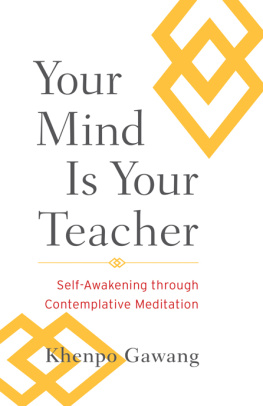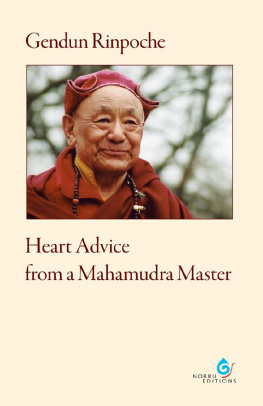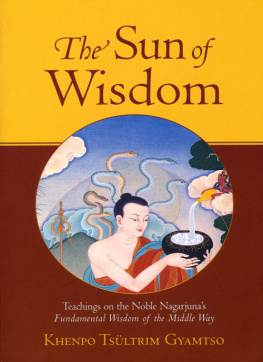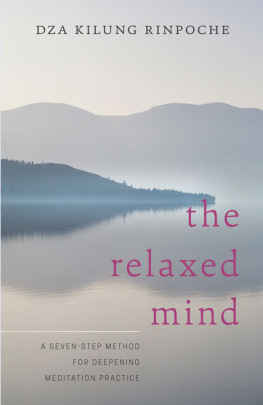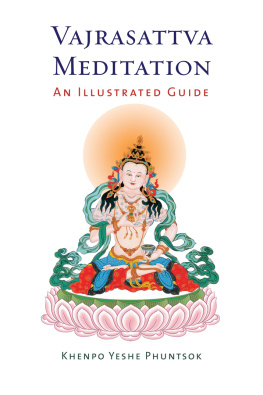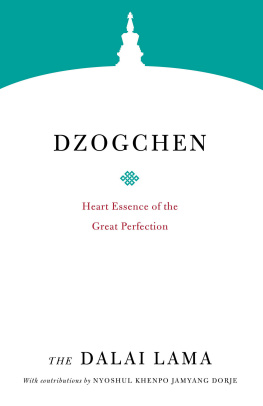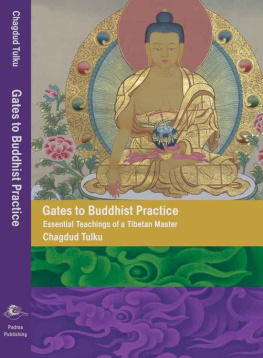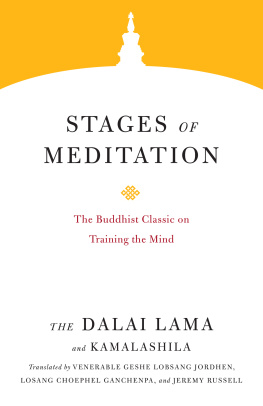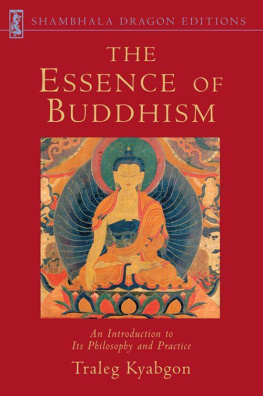Khenpo Gawang Rinpoches book is designed specifically with Westerners in mind, giving clear, concise advice and step-by-step instructions for those wanting to develop their meditation practice and gain insight through analytical meditation. By following these instructions, students will be able to establish a solid foundation.
17th Karmapa Ogyen Trinley Dorje, author of The Heart Is Noble
Khenpo Gawang has mixed beautifully his personal experience with the traditional presentation of dharma.
Sakyong Mipham, author of The Shambhala Principle
Khenpo Gawang Rinpoche has written an engaging and gentle exposition of the Buddhas path, interspersed with lively personal anecdotes, inspiring insights, and contemplations the reader can easily follow and benefit from. This book provides practical wisdom for anyone interested in bringing the teachings to life in their own experience.
Elizabeth Mattis-Namgyel, author of The Power of an Open Question
Through Contemplative Meditation we learn to investigate reality by looking carefully at our own mind and everyday life. We come to know ourselves very wellnot only the negative habits we want to change, but our innate potential to find peace, happiness, and wisdom. In this practice we will discover that the secret to success lies in developing the right mental attitude, which is the wish to benefit others.
KHENPO GAWANG Rinpoche is the founder and spiritual director of Pema Karpo Meditation Center in Memphis, Tennessee. Having completed twenty-seven years as a monk, twelve years of teaching experience, and nine years of study at the Buddhist University of Namdroling Monastery in South India, he holds a Khenpo degree, the Buddhist equivalent of a PhD. Gawang Rinpoche came to the United States in 2004 at the invitation of Sakyong Mipham Rinpoche and Shambhala International. He proudly became an American citizen in 2012.
Sign up to receive weekly Tibetan Dharma teachings via e-mail.

Or visit us online to sign up at shambhala.com/edharmaquotes.
Your MindIs Your Teacher

Self-Awakening through Contemplative Meditation
KHENPO GAWANG

Shambhala
Boston & London
2013
Shambhala Publications, Inc.
Horticultural Hall
300 Massachusetts Avenue
Boston, Massachusetts 02115
www.shambhala.com
2013 by Khenpo Gawang Rinpoche
All rights reserved. No part of this book may be reproduced in any form or by any means, electronic or mechanical, including photocopying, recording, or by any information storage and retrieval system, without permission in writing from the publisher.
Translations of verse extracts are by Khenpo Gawang Rinpoche and Gerry Wiener, unless otherwise noted.
English translation of by Jamgon Mipham Rinpoche copyright 2013 by Khenpo Gawang Rinpoche and Gerry Wiener.
English translation of by the Nland Translation Committee under the direction of Chgyam Trungpa Rinpoche, copyright 1975, 1980 Diana J. Mukpo and the Nland Translation Committee. Reprinted by special arrangement.
LIBRARY OF CONGRESS CATALOGING-IN-PUBLICATION DATA
Nag-dban, Mkhan-po.
Your Mind Is Your Teacher: Self-Awakening through Contemplative Meditation / Khenpo Gawang.First edition.
pages cm
Includes translation from Tibetan and Sanskrit.
eISBN 978-0-8348-2903-9
ISBN 978-1-59030-997-1 (pbk. : alk. paper)
1. MeditationBuddhism. 2. Nag-dban, Mkhan-po. I. Mi-pham-rgya-mtsho, Jam-mgon Ju, 18461912. Dpyad sgom khor lo ma. English. II.Tripitaka. Sutrapitaka. Prajaparamita. Hrdaya. English. III.Title.
BQ5612.N33 2013
294.34435dc23
2012044708
Contents
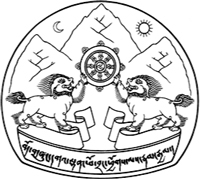
THE ULTIMATE PURPOSE of Buddhism is to serve and benefit humanity. The Buddhas teaching is essentially to help others if you can, and if you cannot, at least not to harm them. This is advice from which we may all draw inspiration, whatever our personal faith or belief.
I am often asked whether the teachings and techniques of Buddhism continue to be relevant in the present day and age. Like many other spiritual paths, Buddhism deals with basic human problems. The key is inner peace. If we have that, we can face difficulties with calm and reason, while our inner happiness is undisturbed. Love, kindness and tolerance, the conduct of nonviolence, and especially the Buddhist theory that all things are relative are a source of that inner peace.
Part of Buddhist practice involves training our minds through meditation. But if our training in calming our minds, developing qualities like love, compassion, generosity, and patience, is to be effective, we must put them into practice in day-to-day life. Khenpo Gawang Rinpoche has prepared this meditation handbook, Your Mind Is Your Teacher, for Western students based on the teachings of Mipham Rinpoche. He presents a clear explanation of analytical meditation, based on the Four Seals and the Heart Sutra, with the intention of making it as accessible as possible even to those who may not consider themselves Buddhists.
Presenting the Buddhas teachings in a way that makes it easier for people to use them to effect a transformation of their minds is a work of true spiritual friendship.
This takes on a wider importance when you consider that even if only a few individuals are able to create mental peace and happiness within themselves and act with kindness towards others, they will have a positive influence in their community. This will contribute to our creating a happier, more peaceful world.

The 14th Dalai Lama, Tenzin Gyatso
May 4, 2013
This handbook is designed to lay out the steps to becoming an expert on our true selves through the practice of Contemplative Meditation. Sometimes called analytical meditation, Contemplative Meditation is a sitting practice in which, instead of trying to quiet our thoughts, we apply the thinking capacity of our naturally inquisitive mind. Thats why this book is called Your Mind Is Your Teacher.
From the Buddhist point of view, the source of our troubles is that we have seriously misunderstood our body and our mind. It is the job of Contemplative Meditation to correct these misperceptions. When you begin to know the true nature of your body and mind, you will feel better about yourself and your life. I know this from my own experience and the experience of many others.
There can be any number of subjects to think about using this method of Contemplative Meditation. In this book we will analyze and contemplate the four marks of existence, so named because they encompass the totality of existence. They are also known as the Four Seals of the Dharma because they are the hallmarks of the Buddhist path. In brief, the Four Seals are the teachings of multiplicity, impermanence, suffering, and emptiness.
When you understand the first three clearly, then you will automatically know what emptiness means: the fact that the ego to which we cling for our sense of identity and well-being is an illusion, and that in reality all things are devoid of any permanent, separate self. This fourth seal, emptiness, requires an additional level of analysis, which is explored through a commentary on the classic Heart Sutra, a very powerful short text inspired by the Buddha, which is provided here in English translation.
Next page
